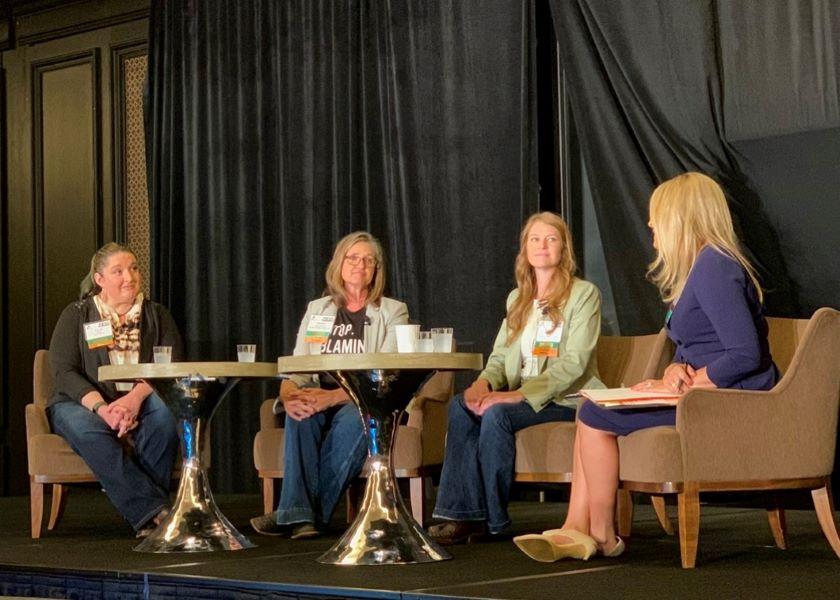Can Agriculture Save the Planet?

If we get it right, agriculture can, in fact, save the planet, said Jack Bobo, CEO of Futurity, during the Animal Agriculture Alliance's 2022 Stakeholders Summit in Kansas City.
Bobo discussed beliefs that claim the food system is broken, stemming from issues with food security and equity, Animal Agriculture Alliance shared in a release. He countered that if things are broken, that usually means they were better in the past. In the case of our food system, he said, “Things are not bad and getting worse; things are good and getting better – just not fast enough.”
Bobo wasn't the only one to touch on the food system during the Summit. Registered dietitian and author Diana Rodgers highlighted the importance of meat, milk, poultry and eggs in a nutritious diet as they are high-quality protein sources and provide essential nutrients that would be hard to replace if these foods were removed from our plates. Rodgers said we cannot take meat away from people who depend on it for their nutrition or food security.
In addition to the food system, attendees learned about the growing trend of influencer engagement to reach more people through partnerships and collaborations from former Google executive Steve Lerch of Story Arc Consulting.
Lerch said if you’re not front and center on the platforms consumers care about, they will find somewhere else to get their information. He shared tips to achieving more influence, including “pay attention to the things your targets are paying attention to” and take advantage of trends in pop culture.
“There is no one right way to do advocacy,” said Brandi Buzzard, Kansas cattle rancher and social media influencer, during a panel of farmer influencers.
Speakers encouraged attendees to not be afraid to try something new as long as they don’t put down their fellow advocates while doing it. Speakers shared sentiments that doing so creates division between fellow advocates and turns customers off to animal agriculture as a whole.
Safeguard the Future of Animal Agriculture
During a panel on May 12 about trends in activism and security resources, Rebecca Morgan of the National Counterintelligence and Security Center said, “An ounce of prevention is worth a pound of cure…the most effective measures are often the simplest and least expensive.”
Cybersecurity advisor Andrew Rose added that it’s important to remember even the most well-thought-out plans will have holes in them but running through them in advance can help you identify those weak points.
In a legal and legislative update session, experts discussed some of the primary issues on the docket, including California's Proposition 12 and Massachusetts Question 3, and what attendees can do to help.
The Summit ended with an interactive crisis communications workshop led by Tricia Sheehan of Dairy Management Inc. and Iowa Soybean Association’s Aaron Putze that included a realistic and unexpected protest scenario.
Sheehan’s team mimicked common tactics used by animal rights extremist organizations to get attendees considering what they would do in a similar scenario, the release said. Sheehan walked through the important components of a crisis communications plan and allowed attendees to put it into practice with an interactive example.
Putze encouraged the audience to take what they’ve learned, apply it and move forward with a mindset relationship.
“What we do matters, but more importantly, it’s how we do it that matters,” Putze said. Prioritize what’s important over what’s urgent with a focus on being courteous, treating others with dignity, and treating others with respect.
The Stakeholders Summit brought together a diverse audience of over 260 attendees and included an additional 125 registered virtual attendees.
Read More:
Animal Rights Extremists Take Their Cause to the Courtroom
Biosecurity and Farm Security are Closely Linked
4 Keys to Prevent Animal Activist Attacks in the Wake of a Disaster
Report Distorts Truth About Worker Safety During Pandemic, Meat Institute Says







